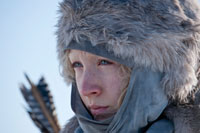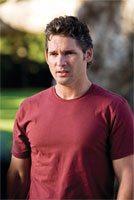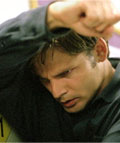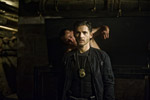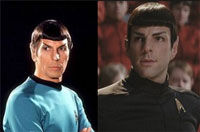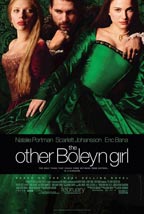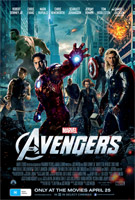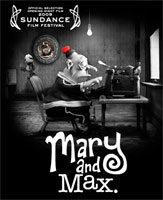Eric Bana The Secret Scripture
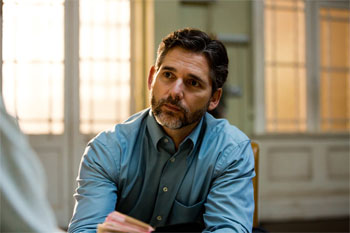
Time Doesn't Forget
Cast: Theo James, Rooney Mara, Eric Bana
Director: Jim Sheridan
Genre: Drama
Rated: M
Running Time: 108 minutes
Synopsis: Diagnosed as criminally insane for having killed her baby, Roseanne -Lady Rose' Clear (Vanessa Redgrave) has been a patient at St Malachy's mental hospital, Co. Sligo in the west of Ireland for over half a century, and is now its last resident. There are plans to close the hospital to make way for a five star hotel and spa, and as the hospital's last inmate Rose – who insists her name is Rose McNulty - must move to a new facility. Psychiatrist Dr. Stephen Grene (Eric Bana) has been brought in to confirm Rose's mental incapacity but he quickly discovers that Rose is no ordinary case and through the discovery of her -secret scripture', he is drawn into an investigation of the reasons why she believes she is innocent and how she ended up in St Malachy's.
Rose's reminiscences transport us to Autumn of 1942 – the -Emergency' – when the Irish state remained officially neutral during WWII but retained a hard core of anti-Britishness in its IRA heartland. Evacuating Belfast on account of the war, the young Rose (Rooney Mara) returns to her childhood home of Ballytivan, Co. Sligo where she takes a job at Prunty's Temperance Hotel, owned and run by her mother's sister Aunt Eleanor Prunty (Aisling O'Sullivan). Young, beautiful and Protestant she is an exotic object of fascination and distraction for the young men of the small town, and the advances of Jack McNulty (Aidan Turner) and more troublingly Fr. Gaunt (Theo James) bring unwanted attention and a suggestion of scandal which prompts Mrs Prunty to seclude her young relation in a disused cottage in the woods. She is no sooner there however when Michael McNulty (Jack Reynor) – another local lad who has become an RAF pilot - crash lands in the woods where he is discovered by Rose who hides him from the local IRA. Outsiders within the deeply conservative sexual and political climate of 1940s Ireland, Michael and Rose find an instant attraction to one another that quickly turns to a passionate love. Their idyll is shattered however as the local IRA gang - led by Tailor O'Donnell (Tom Vaughan Lawlor) - hunt down and eventually kill Michael as a traitor to Irish nationalism.
Realizing that Rose has rejected him in favour of Jack (though there were no signs she was attracted to him in the first place), Fr. Gaunt writes a letter committing her to St Malachy's mental hospital on the grounds that she is a -nymphomaniac'. Bewildered by this injustice Rose begins to lose her sense of reality. Her disorientation is further exacerbated by the realization that she is also pregnant. She is then brought to St Ignatius' convent – a -Magdalene laundry' – to hide her -shame' from Irish society where her baby will be taken from her and sent to adoption. Just before childbirth she manages to escape but is pursued by police and Fr. Gaunt. Swimming to a nearby island, she is seen bashing her newborn child with a rock. For this act of infanticide she is immediately arrested and sent back to St. Malachy's asylum where she spends the rest of her days in a state of emotional confusion, speaking of her husband and child and writing apparently indecipherable notes and pictures in the bible discovered by Dr. Grene.
The narrative returns to the present day. Grene's confirmation of Rose's mental state – initially considered a formality which could be concluded -by lunchtime' by the callous Dr. Hart (Adrian Dunbar) - has been complicated by his developing relationship with his patient, who is perhaps not so mad as she seems. Through his conversations with Nurse Caitlin (Susan Lynch), Grene slowly uncovers an alternative story and the meanings underlying -the secret scripture'. And the more he understands, the more surprising, and personal, the revelations become.
The Secret Scripture
Release Date: September 9th, 2017
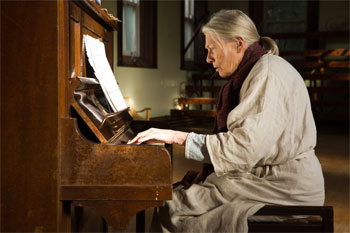 About The Production
About The Production
Jim Sheridan is an instinctive storyteller whose best work – My Left Foot; In the Name of the Father; In America - has centered on themes of family and justice. The Secret Scripture deals with both, and introduces us to elements both familiar and new: a strong female protagonist caught up in the currents of war-time politics, the power of the Irish Catholic church and state over independently minded individuals, and the subversive powers of love and the imagination.
Producer Noel Pearson optioned Sebastian Barry's prize-winning novel soon after its publication and a draft of the screenplay was completed by the late Irish screenwriter, Johnny Ferguson. Jim Sheridan explains that: 'Noel Pearson asked me to read it, so I met with Johnny Ferguson and a long conversation began between us. When Johnny Ferguson passed away, I just couldn't get the story out of my mind, it kind of haunted me, and I wrote a long email to Noel explaining where I thought the film should go. As I was writing I began to see a movie that I felt I would want to make. So the project kind of chose me." Nevertheless he was equally aware that he would want to make some alterations to the source material: 'When I came on board as director, the first thing I did was call Sebastian to tell him that I would like to make changes and he was OK with that. Once he gave me that permission I felt I could shape and develop the story the way I wanted to. Sheridan explains that while, 'It's an incredibly lyrical and beautifully written book – more like Samuel Beckett than a movie really - the challenge was to bring a story that is inside her head out onto the screen. She's been committed to the mental institution by the priest (Fr. Gaunt) and lives for a very long time afterwards during which she writes her -scriptures'. The problem from a dramatic point of view is that she's really a rather passive character." Sheridan therefore began by compressing the narrative: 'limiting the past section to a few months (Autumn 1942) and the present section to just four days so we have a greater sense of tension and pressure in the story." We now have these two moments contrasted against each other, both centering on Rose and the men who seek to control her.
Rooney Mara plays the young Rose; an exotic siren to the sexually repressed and politically charged young men in the Co. Sligo town of Bally. in the west of Ireland. Mara explains that she was attracted to the character of Rose because 'she was just such a complex female character and because of how many different stages there are – so many different stories - within the story. So, there's really a lot to work with and to play with, and a lot of different colors to bring to it as an actor." Rooney sees Rose less as a victim of religion than 'of her time; I think similar things happen to many women in different contexts. Certainly back then in Ireland, religion was a source of a lot of tension and within the community she happens to live in – she's outnumbered. Being Protestant makes her the odd one out. But I don't think necessarily that if she were Catholic she wouldn't also have been locked up. think that it's more her being a beautiful and dangerous young girl who's driving all these men mad." While Rooney accepts that some of the men in the town simply lust after Rose, she also thinks it is a more complex dynamic than that: 'I think a lot of them have genuine feelings towards her; they've never really encountered anyone like her before . . . there is this attraction to her that they've maybe never felt before. I don't think it's just sexual – it's also the way about her, and her mind, and her personality. Part of the attraction to her is that she's not really someone that you could control - she definitely has a little fight in her. They're attracted to that spirit of freedom."
Vanessa Redgrave plays the older -Lady Rose' who, following the discovery of her pregnancy and -killing' of her baby, has been incarcerated for most of her adult life. A lifelong and very public advocate of human rights, Redgrave is unsurprisingly moved by the injustice at the heart of the story: 'Governments have been mainly responsible, Churches have been responsible; I wonder who spoke out and protested against these crimes during the 30s, 40s and 50s for instance? A tragic story, but it's true. Truth should be told. And this film is part of telling the truth." For Redgrave, the character of Rose is of particular interest because 'She's damaged, that's for sure, but the question that really interests me, more than any other, is: who thinks they are sane?"
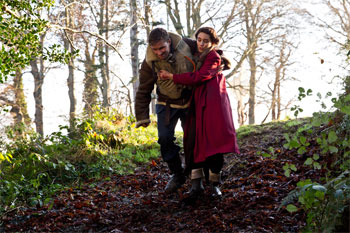 Eric Bana plays Dr. Gene, an esteemed psychiatrist charged with reassessing Rose's mental condition in advance of her being moved from St Malachy's mental asylum where she has spent the majority of her adult life. Dr. Grene brings a professional objectivity and compassion to his dealings with Rose that lead him on a path of discovery about her background and the truth of her story and put him on a collision course with Dr. Hart (Adrian Dunbar) who sees Rose as nothing more than a mad old woman obstructing the path of progress. 'He actually ends up becoming more like a detective than a psychiatrist", says Bana 'so it's quite an interesting predicament that he gets put into. His gentle unpeeling of her backstory makes Grene think that maybe there is a real tragedy here and maybe this is a woman was wrongly committed, and that the story she insists on is true."
Eric Bana plays Dr. Gene, an esteemed psychiatrist charged with reassessing Rose's mental condition in advance of her being moved from St Malachy's mental asylum where she has spent the majority of her adult life. Dr. Grene brings a professional objectivity and compassion to his dealings with Rose that lead him on a path of discovery about her background and the truth of her story and put him on a collision course with Dr. Hart (Adrian Dunbar) who sees Rose as nothing more than a mad old woman obstructing the path of progress. 'He actually ends up becoming more like a detective than a psychiatrist", says Bana 'so it's quite an interesting predicament that he gets put into. His gentle unpeeling of her backstory makes Grene think that maybe there is a real tragedy here and maybe this is a woman was wrongly committed, and that the story she insists on is true." The Secret Scripture is structured by successive attempts to remove the -moral threat' of Rose from 1940s Irish society. The first of these banishments is to a small rural cottage where she is sent by Mrs Prunty following the interest of Fr. Gaunt. The priest's ambitions for his relationship with Rose never have time to develop however because no sooner has she moved to the cottage than she encounters Michael -Mick' McNulty, Jack's brother who has -fallen from the sky' when his Royal Air Force plane crashes.
Jack Reynor plays Michael McNulty: 'He's someone who has joined the RAF and obviously he's antagonised the hardline republicans, and his family too – especially his brother Jack - by doing that. I think when we meet him he doesn't really care whether he lives or dies but through conversations and just being in her presence, he starts to find the will to live again and to have a life and to have a life with her." Yet their happiness is to be short-lived as the local IRA gang, led by Tailor O'Donnell (Tom Vaughan Lawlor) have McNulty marked as a traitor and come looking for him. Vaughan Lawlor remarks that: 'In the town Tailor O'Donnell leads the IRA cell that are charged with reconnaissance and intelligence and stuff like that. That's at a political level, but he's also a young man in a small town with his own personal and sexual frustrations, like I suppose a lot of people had in those times. Rose is interested and very taken with Jack and that causes jealousy - he gets the girl."
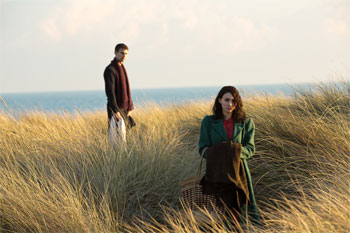 For Jim Sheridan a fundamental decision in the process of adaptation involved the character of Fr. Gaunt: 'One of the interesting things that happened in developing the screenplay was in relation to the priest. I felt he shouldn't be clichéd. We've seen lots of Irish priests in films down through the years that are very similar and of all the book's characters he went through the biggest transformation. Now he's a more sympathetic character, very handsome, very masculine and the dark aspects of his character have been toned down. I made those changes because I felt he'd be far more interesting and emotionally complex if we sympathized in some ways with his feelings for Rose." Gaunt is played by one of the film's many rising stars, Theo James: 'This is a priest who is new to the parish, whereas in the book he's a stalwart he's very much part of the society. So he's not fully trusted but yet there is still a respect there. He's revered and people are a little bit scared of him but then there's the perception that he falls in love with Rose." What's tricky in a way is that the ultimate love story is with a different man, that she ultimately abandons him, and he her. It's interesting how that works out because he betrays her through his jealousy." Explaining the dynamic between Rose and Gaunt, Theo explains 'he's a man of principle and a man of clarity, but that's compromised by the feelings that he has towards Rose character; he in love with her, which brings up other doubts, and so he becomes quite angry with God and with the church." When he attempts to -defend' her from Jack McNulty in public however, Rose is more forthright: 'You're a Priest who wants to be a man Stephen. Make up your mind. But don't involve me in it." For those who witness the priest's jealous eruption, the scene is scandalous.
For Jim Sheridan a fundamental decision in the process of adaptation involved the character of Fr. Gaunt: 'One of the interesting things that happened in developing the screenplay was in relation to the priest. I felt he shouldn't be clichéd. We've seen lots of Irish priests in films down through the years that are very similar and of all the book's characters he went through the biggest transformation. Now he's a more sympathetic character, very handsome, very masculine and the dark aspects of his character have been toned down. I made those changes because I felt he'd be far more interesting and emotionally complex if we sympathized in some ways with his feelings for Rose." Gaunt is played by one of the film's many rising stars, Theo James: 'This is a priest who is new to the parish, whereas in the book he's a stalwart he's very much part of the society. So he's not fully trusted but yet there is still a respect there. He's revered and people are a little bit scared of him but then there's the perception that he falls in love with Rose." What's tricky in a way is that the ultimate love story is with a different man, that she ultimately abandons him, and he her. It's interesting how that works out because he betrays her through his jealousy." Explaining the dynamic between Rose and Gaunt, Theo explains 'he's a man of principle and a man of clarity, but that's compromised by the feelings that he has towards Rose character; he in love with her, which brings up other doubts, and so he becomes quite angry with God and with the church." When he attempts to -defend' her from Jack McNulty in public however, Rose is more forthright: 'You're a Priest who wants to be a man Stephen. Make up your mind. But don't involve me in it." For those who witness the priest's jealous eruption, the scene is scandalous. One commonly expressed sentiment across the large and diverse young cast assembled for the film is an enthusiasm for working with Jim Sheridan, an opportunity which drew an extraordinary range of talented actors to the project. Theo James explains that, 'What's nice about working with Jim is that there is a constant evolution. He sees how people will naturally play against one another and he can then mold it in a way which is very dynamic and responsive. Jack Reynor explains that in the process of working with Jim Sheridan, -Michael McNulty' has developed considerably and the same is true of many of the film's characters. 'We have got a lot more going on than was originally planned. Jim is an incredibly compassionate and empathetic person and that comes across in everything he does. He wants to gather as much perspective as he can on every character and I think that's his real skill. There are no filler scenes, it's all working towards something. It's all relevant to somebody's character.
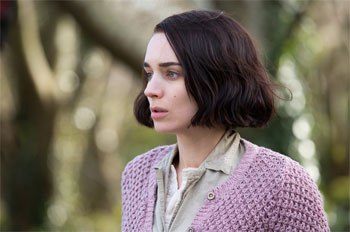 Tom Vaughan Lawlor is effusive: 'Jim's brilliant with actors. He loves actors and what actors offer and it's interesting watching him jump into takes and shows what he wants and you think wow he's really good. It's amazing and you think that's exactly spot on – that's exactly it. He's very passionate and committed, but even playing a fictitious character in a scene, you think that it's amazing to have a man behind the camera who understands acting and actors and it gives you great faith in him." When asked about his reputation for spontaneity on set Sheridan explains: 'Well, it depends. Sometimes I stick exactly to the script as it was written but other scenes I like to keep them alive so I might make some changes or suggestions. What I try to do is take away the responsibility of performing from the actors so they might think that I'm ad-libbing or improvising but all I'm doing is protecting them: I'm saying, you can't mess it up here, be true, trust yourself. If you know exactly what's happening next then it's dead."
Tom Vaughan Lawlor is effusive: 'Jim's brilliant with actors. He loves actors and what actors offer and it's interesting watching him jump into takes and shows what he wants and you think wow he's really good. It's amazing and you think that's exactly spot on – that's exactly it. He's very passionate and committed, but even playing a fictitious character in a scene, you think that it's amazing to have a man behind the camera who understands acting and actors and it gives you great faith in him." When asked about his reputation for spontaneity on set Sheridan explains: 'Well, it depends. Sometimes I stick exactly to the script as it was written but other scenes I like to keep them alive so I might make some changes or suggestions. What I try to do is take away the responsibility of performing from the actors so they might think that I'm ad-libbing or improvising but all I'm doing is protecting them: I'm saying, you can't mess it up here, be true, trust yourself. If you know exactly what's happening next then it's dead." The Sights And Sounds Of The Secret Scripture
Set in two historical time periods and a variety of Irish settings, the production of The Secret Scripture made particular demands on department heads in costume, production-design cinematography and music.
Costume
Joan Bergin is a hugely respected Costume Designer (five-time Emmy nominee and threetime winner for her work on The Tudors) and has worked on every Irish-produced Jim Sheridan film since My Left Foot.
In conceiving the costumes for Secret Scripture, Joan says that she was 'very anxious not to do a typical 1940s period film because I feel that there has been so much of that and I also wanted it to be very true to an Irish country town with as much wit and dignity as I could bring to it, given that the story is so dark. So what I've done is found, rather than made, a great deal of clothes that are actually from the period - 70 years old - and that's quite remarkable. You can be certain that is what people wore, these are actual garments from that time. I was very impressed at how well they dressed actually, because the 1940s have a lovely line to the clothes. The tricky bit was to make Rose stand out in the town but not have her look like something that came from Vogue magazine. So I've worked a lot with color and Rooney Mara has perfect coloring for the period. I've used a lot of beautiful shades of green, blue, turquoise, orangy-pink, pinks, gold with her. So among all the brown there is this flower. In terms of the locals, I've also tried to bring a bit more variety than you often see in film. Mrs Prunty for instance (Aisling O'Sullivan) is very well dressed and you can see what her background was through her clothes; she's a notch above the rest of the town's women in terms of style and social class."
'What's remarkable is the quality of the local Irish tweeds from the period and I've used those with the men. A lot of men in the cast have been saying -why aren't there clothes like this now?' But you just couldn't afford them because of the craftsmanship."
'In switching to the contemporary part of the story I've tried not to have a complete break in style. So while Rose is in an institution and has to wear day clothes, she is confined a lot to her room and to the recreation rooms and so she's a lot in nightdresses, wraps and cardigans that echo what she's worn before. I want the audience to connect the two periods through the clothes so that they are subconsciously aware of the person she was before and what she has lost."
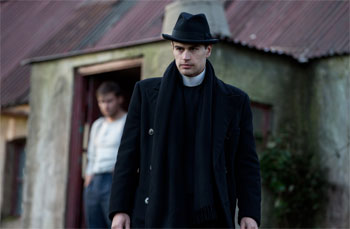 Production Design
Production Design Like Joan Bergin, Production Designer Derek Wallace also has a long and highly collaborative working relationship with Jim Sheridan. In preparing The Secret Scripture, he and Jim began by visiting old mental asylums around Ireland, getting a feel for both the architecture and the mindset which frame the film's story.
Derek explains that 'We met people who worked in these places and the main thing we noticed was that they all seemed to be tied to local communities. So we started building up a whole picture of what the institutions looked and felt like in the 1940s. Then it was a case of finding the right location to recreate these places and it took many months of looking and negotiations before we were able to use the unused wing of National Concert Hall – formerly University College Dublin. We've also used the Loreto Convent in South Dublin which has now closed down and is a fantastic location. And our third major location for the institutions is Collins Barracks, which gives a sense of scale.
Derek gives a sense of what was involved in creating the film's institutional settings: 'For the 1942 period we had to cut holes through walls and remove radiators. For the 1992 section we've painted and redecorated a whole wing of the old UCD building. We did a lot of construction, all the floors, windows, lights radiators, everything was built from scratch. So apart from all the other buildings like the cottage, it's been a big job, and I think it'll look like a big film for what is a relatively modest budget. We could have constructed all of that in a studio but it would have cost a huge amount of money and here we have a building that is exactly what is depicted in the film in terms of the period in which it was built.
In recreating the village of Ballytivan, the production went to Inisteague in Co. Killkenny which presented a huge challenge in recreating as a period setting. Derek explains: 'We've repainted and decorated every house and shop in the style of the period, we changed interiors for Prunty's hotel and every square metre of road was covered in tons of gravel and sand because they didn't have tarmac roads in 1942. The council took down all the poles bollards and street signs, then we put in all our own period street lighting. But when you see the film its really worth it – there's great depth in the frame which makes the story totally convincing.
Jim is a very visual director, so for me as a designer you have to be prepared for him to change his mind or made changes or additions and they're usually totally right."
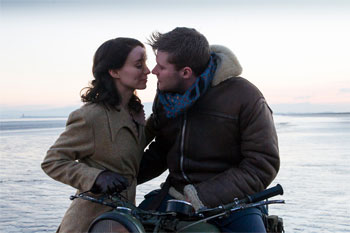 Cinematography
Cinematography A final and key element in the visualization of the story has been the contribution of Russian cinematographer Mikhail Krichman. Jim Sheridan discovered Mikhail when he saw his work on Miss Julie, shot in Ireland in 2014. Says Jim: 'Mikhail is just amazing. He's a true artist and brings a fantastic visual sense but also a sense of grandeur. I thought it could be really depressing for an audience to spend so much time in a dreary mental hospital and so I really wanted someone with a very strong visual sensibility who could express the larger themes of the story. When you have a Russian cinematographer you have someone with a completely different sense of time to ours in Ireland – we tend to think in decades, they think in centuries. And they have an extraordinary visual tradition to draw on, both in terms of painting and cinema. So he's constructed a visual world for the film that really transcends its historical points of contact. Working on set was interesting, mostly we worked without words actually, partly because of language barrier but partly because it wasn't necessary. I'm much more language based and he's much more visual so there's an interesting tension between our approaches."
Music And The Cry Inside
When it came to composing the score for The Secret Scripture, Jim Sheridan approached Golden Globe nominated Brian Byrne, an Irish composer resident in Los Angeles with over 15 scores to his credit and a rapidly rising international reputation. Byrne had previously worked with Sheridan on a number of projects as other projects and was hugely enthusiastic to engage with the creative challenge of scoring an Irish set period film with strong psychological themes.
'When we initially discussed the music Jim had some ideas around traditional Irish airs like Moore's Melodies and particularly Moore's well-known song -The Minstrel Boy' about a young man who has gone to war. I have traditional Irish music in my bones and so I set out to get the feeling of that but without replicating Moore or making the score sound maudlin or like a cheesy pastiche of Irish music."
'When I first read the screenplay my gut instinct was that the music had to convey a sense of the wisdom stored up by Rose over a very long lifetime but to do it economically with only two or three notes rather than the usual route of a huge theme or big Hollywood orchestration. So I took the traditional Irish music scale and wrote a three-minute violin melody which Kenneth Rice (Irish Chamber Orchestra) then recorded on one hundred year old violin. It's not even so much the notes, but the way they're played by Ken - the sound on the violin is eerie and stark, the way you'd expect a fiddle player in the west of Ireland might have played hundreds of years ago. Then I took just two bars of that – only a few notes - and built around that. What I was trying to capture was a timeless music without glamour or ornamentation." 'Those few notes then became the basis of the score and then I've added European sounding piano for some scenes set in the 1940s and then some electronic elements for the more cerebral, institutional scenes set in the present."
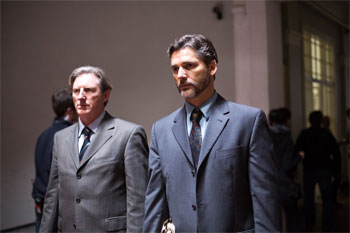 Brian explains that the main musical themes in the film emerged from Rose's relationships. 'Obviously the love theme for her and Michael (Jack Reynor) was crucial. We hear a snippet of it the first time she sees him as she arrives in the town and then fragments every time they see each other and most clearly when they get married and the scene on the beech. The starting point for this theme was the script detail that Rose plays Beethoven's Moonlight Sonata on the piano in the mental hospital. So I took some minor elements of that and developed them. Although it's quite distant in musical terms, it subtly connects her present and her past in terms of mood and tempo."
Brian explains that the main musical themes in the film emerged from Rose's relationships. 'Obviously the love theme for her and Michael (Jack Reynor) was crucial. We hear a snippet of it the first time she sees him as she arrives in the town and then fragments every time they see each other and most clearly when they get married and the scene on the beech. The starting point for this theme was the script detail that Rose plays Beethoven's Moonlight Sonata on the piano in the mental hospital. So I took some minor elements of that and developed them. Although it's quite distant in musical terms, it subtly connects her present and her past in terms of mood and tempo." The other important theme is her relationship is with the priest Fr. Gaunt (Theo James). 'Again I've tried to do this fairly minimally with just a few notes and it has a 1940s style about it. It's a similar theme to Rose and Michael's theme but its darker and more distorted hinting at his own confusion."
Byrne's collaboration with Sheridan on The Secret Scripture went beyond creating a distinctive and original score. Brian recalls that 'I like the idea of songs in movies that are linked to the score and in one of our first meetings Jim had an idea of composing a song for the movie. So that's been in the back of our mind all along." The elements of the song remained vague during the process of composing the score and then in the final days of mixing 'the song started to present itself." Byrne explains that while 'Jim isn't an experienced songwriter he is a great storyteller and so he wrote a number of pages of ideas, images and phrases and we began to work with those over a number of weeks until we had shaped a song. Byrne explains that it was a challenge to find a suitable singer capable of recording the song within the time frame available but he contacted Kelly Clarkson, the first winner of American Idol and three time Grammy Award winner with sales of almost 14 millions album to date. Although she was only weeks away from giving birth to her second child, to Brian's surprise and delight Clarkson replied that she loved the song, was a huge fan of Jim Sheridan and would love to record the track, which she did at her home in Nashville. Brian is justifiably delighted by Clarkson's vocal contribution to 'The Cry Inside' which he describes as 'amazing and really exciting".
The Secret Scripture
Release Date: September 9th, 2017
Have You Seen This?
MORE
- Mission: Impossible Fallout
- Glenn Close The Wife
- Allison Chhorn Stanley's Mouth Interview
- Benicio Del Toro Sicario: Day of the Soldado
- Dame Judi Dench Tea With The Dames
- Sandra Bullock Ocean's 8
- Chris Pratt Jurassic World: Fallen Kingdom
- Claudia Sangiorgi Dalimore and Michelle Grace...
- Rachel McAdams Disobedience Interview
- Sebastián Lelio and Alessandro Nivola...
- Perri Cummings Trench Interview

